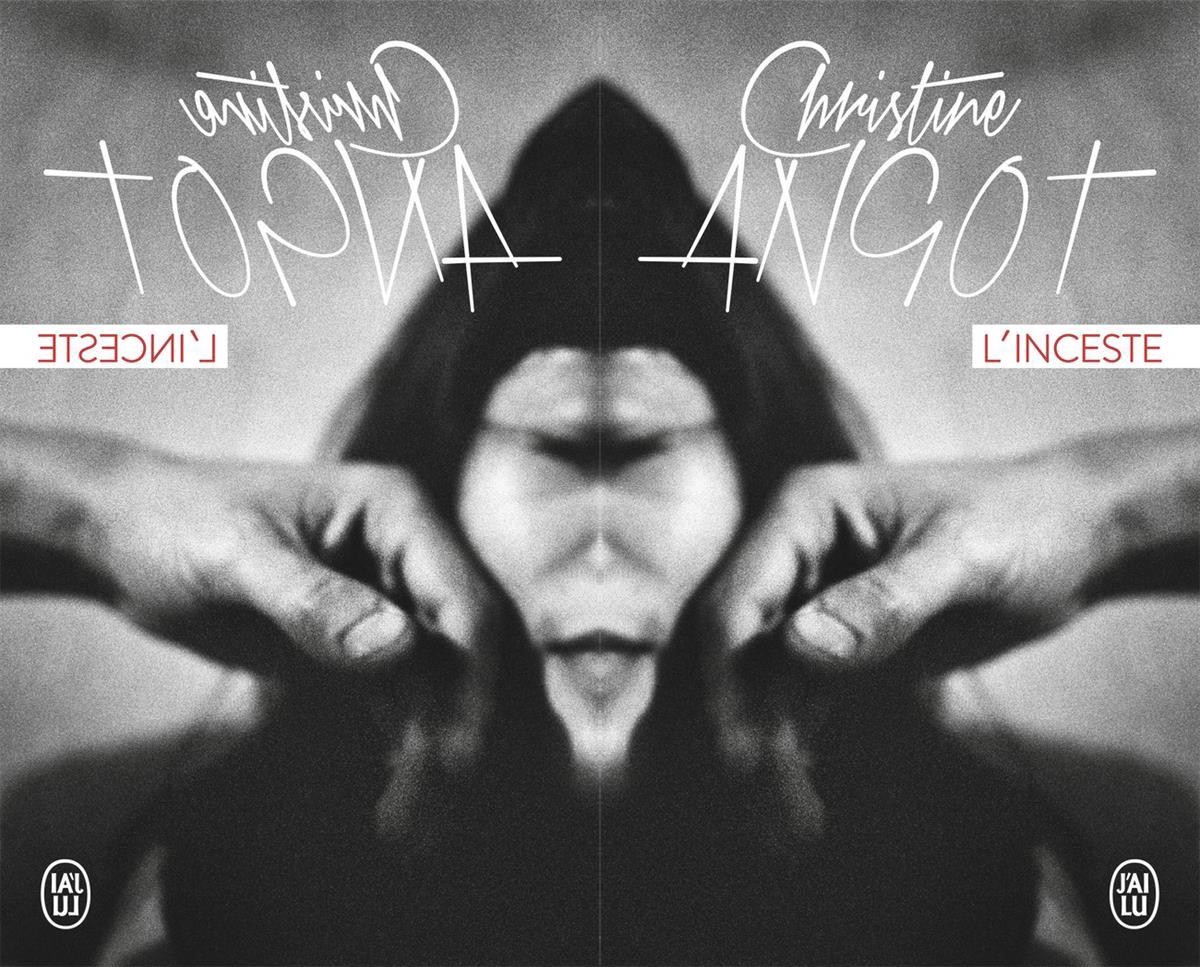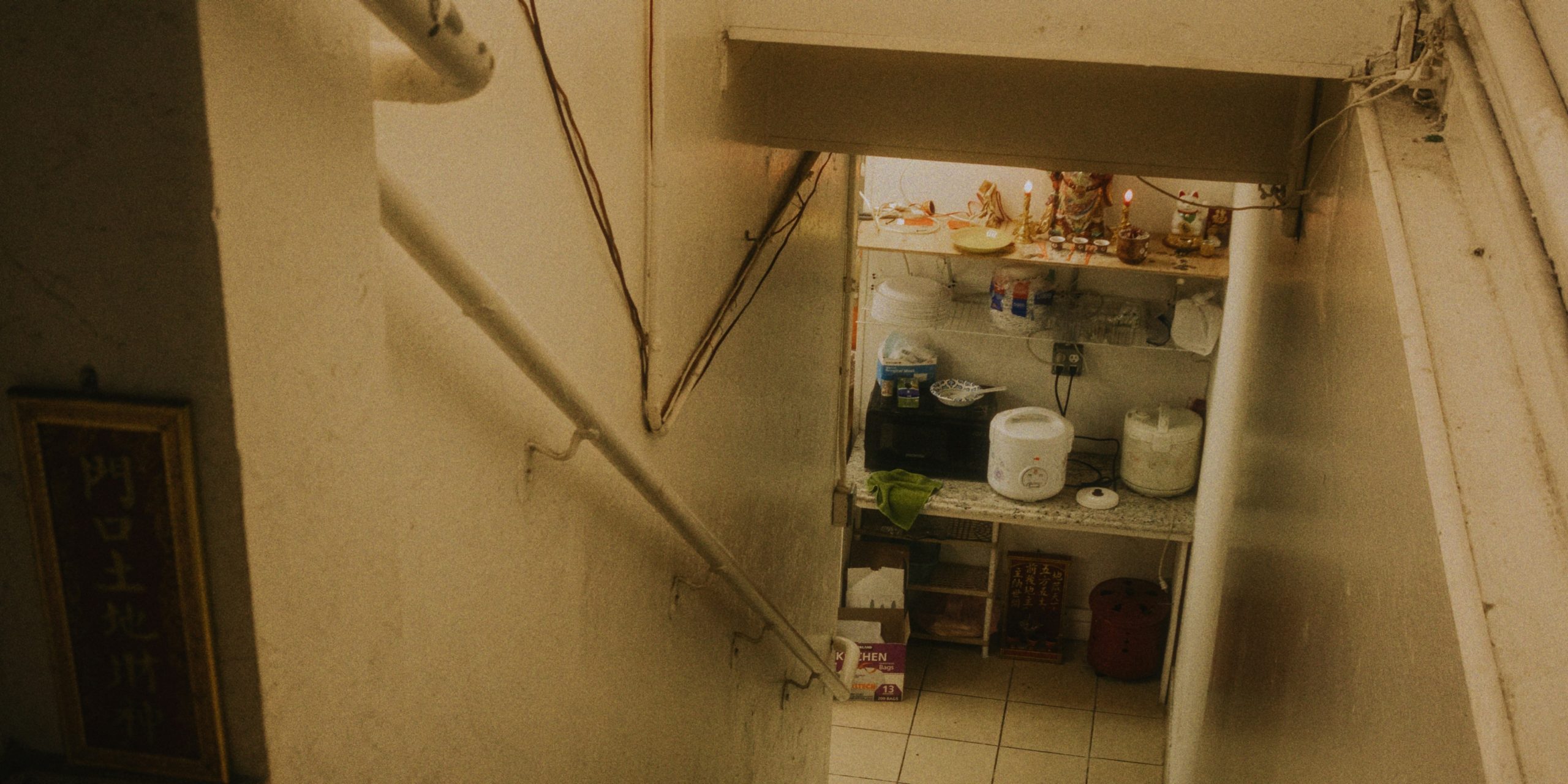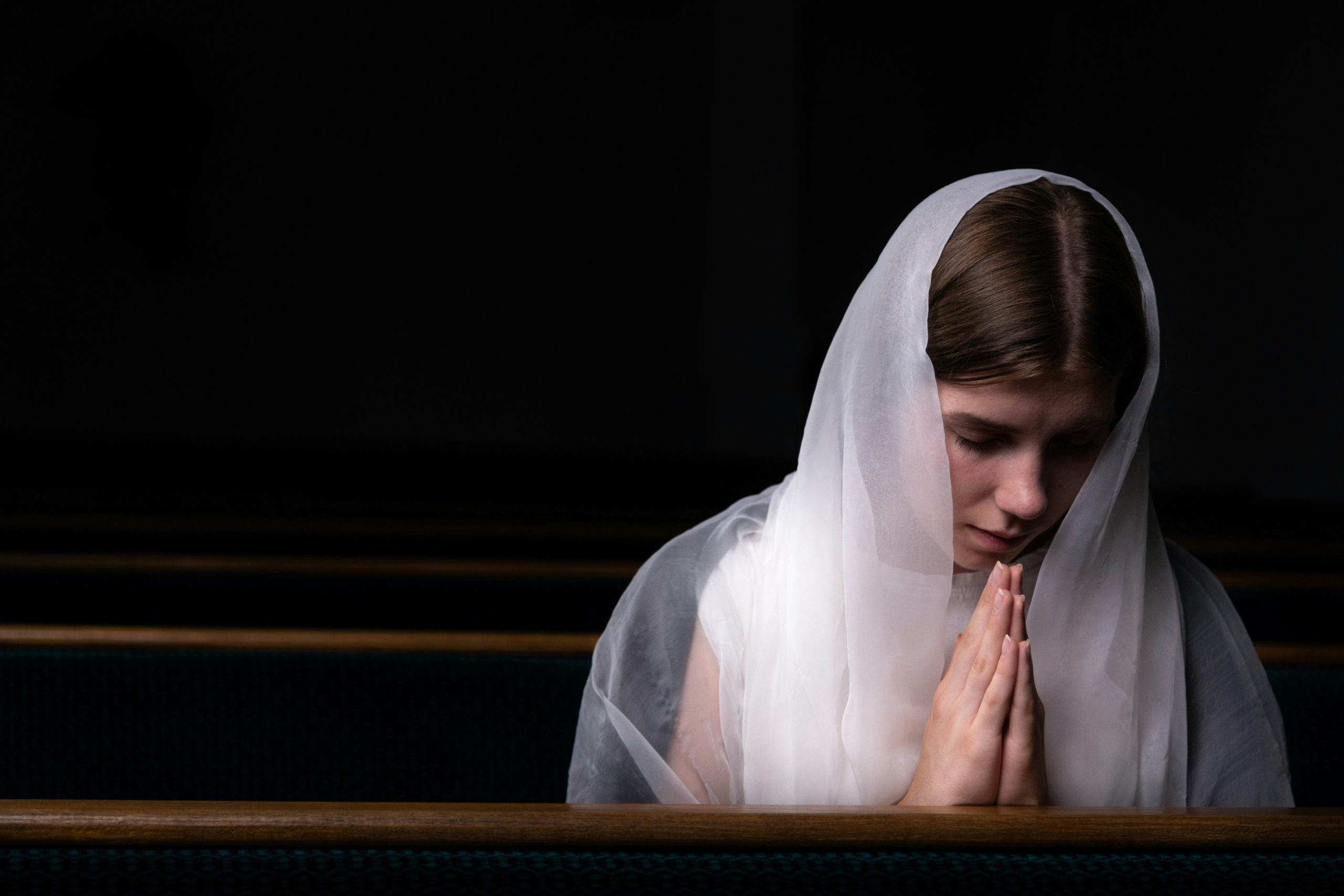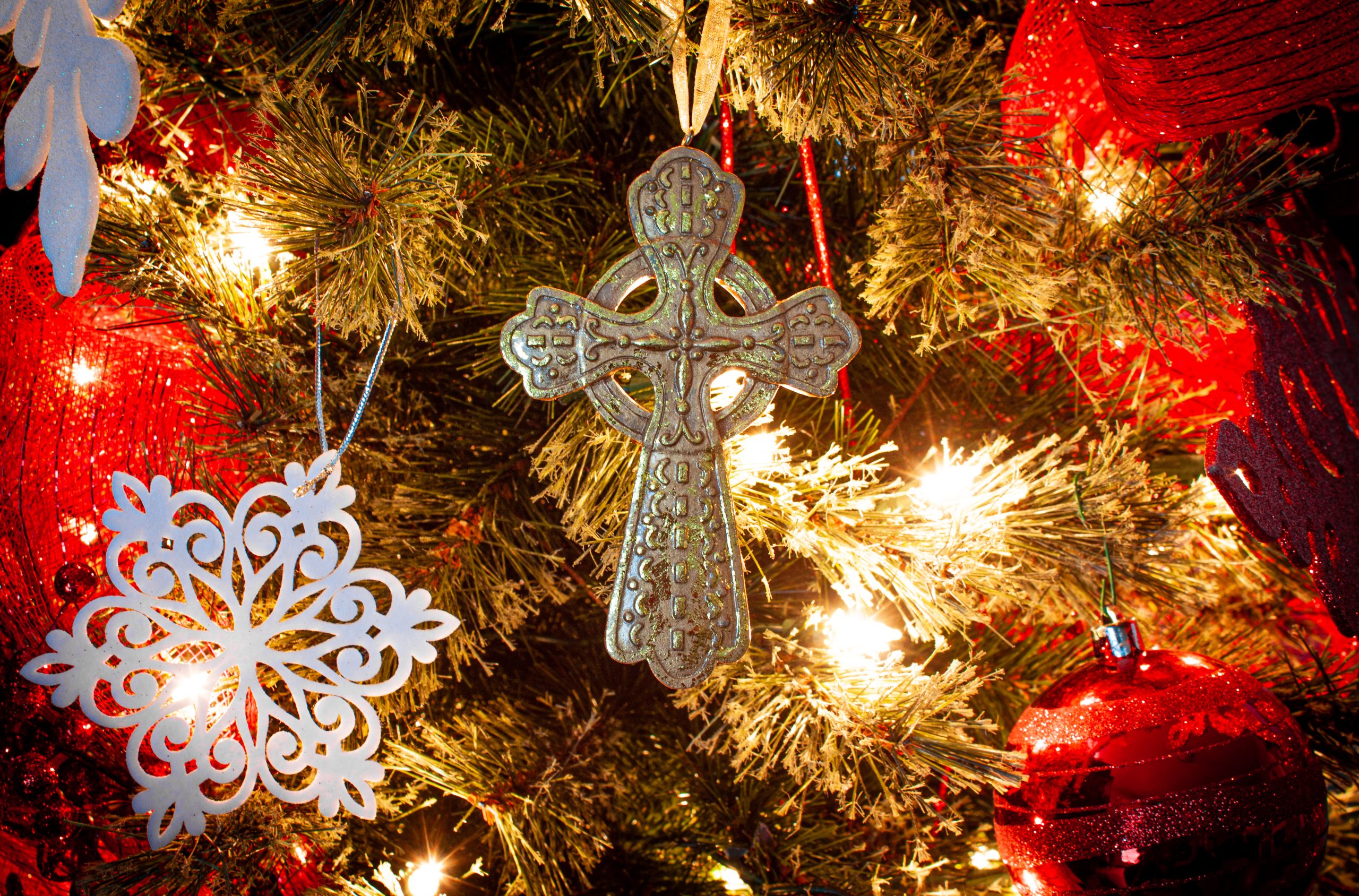Novel Gazing
When the Power Failed
How reading Jon Krakauer in a blackout shook my Mormon faith
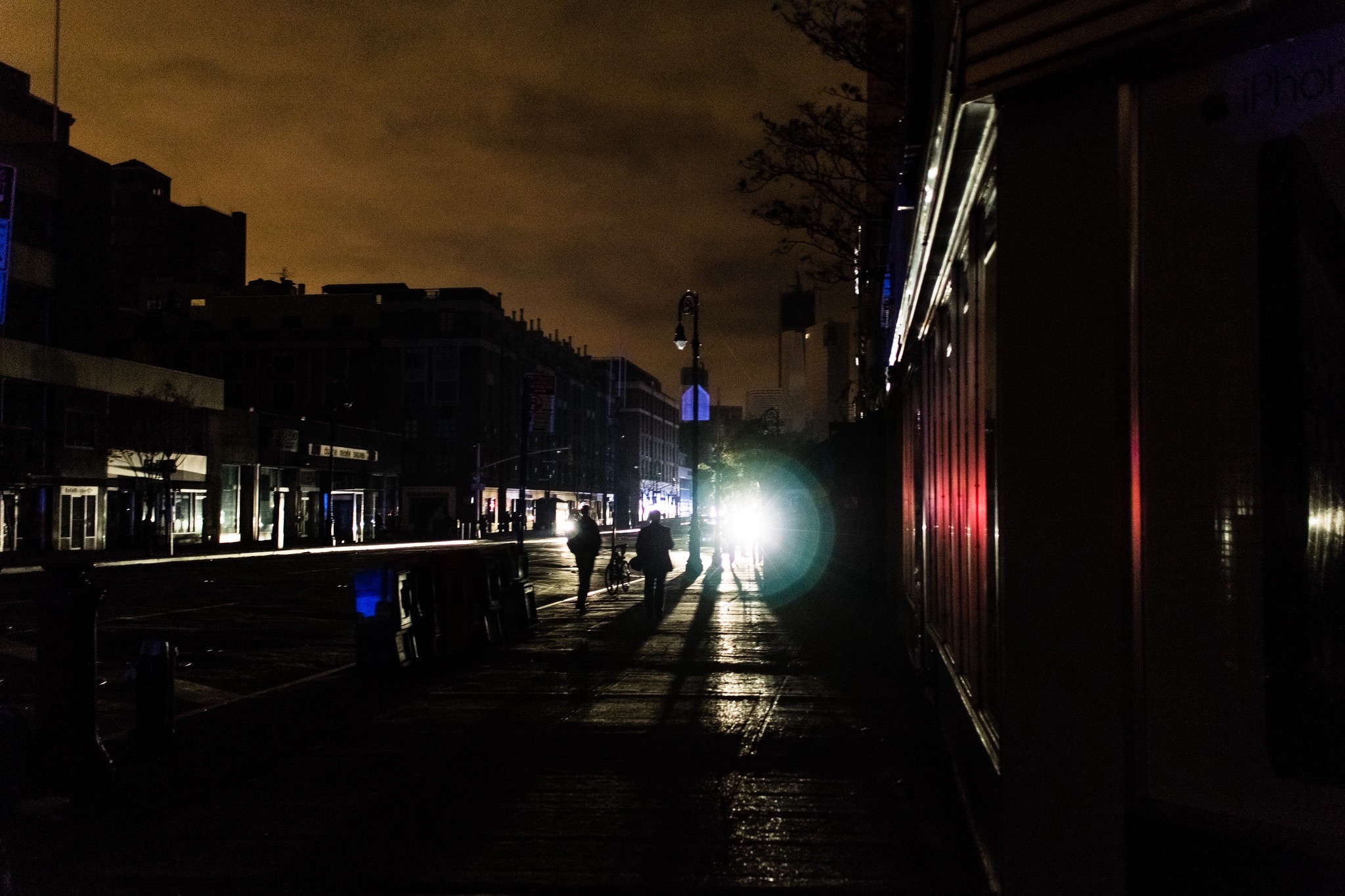
Novel Gazing is Electric Literature’s personal essay series about the way reading shapes our lives. This time, we asked: What book was your feminist awakening?
In the summer of 2003, I was riding Metro-North from New Haven, Connecticut back to New York City where I lived when the power to the train failed. For the first hour, I barely noticed the delay, or the hot mutterings from passengers which had slowly escalated from the odd outburst to a constant buzz. I was deeply preoccupied reading Under the Banner of Heaven, Jon Krakauer’s true story about a brutal double murder committed by two followers of a fundamentalist offshoot cult of Mormonism. I had just convinced my book club, composed entirely of women members of the Church of Jesus Christ of Latter-Day Saints (the mainstream Mormon church, abbreviated L.D.S.) to read it.
My book club, which met in New Haven once a month, had the lofty title Women of Words. It was composed of Yale professors, grad students, and professionals. Every member identified as a feminist — a term still somewhat disparaged by our larger church community. The group typified a small but emerging new generation of Mormon women who were defying the stereotype of cookie-baking stay-at-home mothers. These religious yet ambitious women defied everything I had experienced, and resented, about how Mormon women are expected to behave: to passively accept their inability to hold leadership roles in Church hierarchy; to relinquish career and accomplishment to support family life; to eschew conflict and embrace submission for the sake of peace and harmony.
I committed to one meeting, reluctantly; I assumed it would be a quilting circle that might dare to read an Oprah Book Club selection. I was wrong. I got intellectually schooled when we read Joseph Stiglizs’ Globalization and Its Discontents, and struggled to finish the entire tome Mother Nature — an 800-page academic dissection of everything from infanticide to breastfeeding to female genital mutilation. When I suggested we read a Jon Krakauer book, all twelve members looked at me with tight smiles. They were too polite to tell me, new to the group, that the latest book by an adventure writer, even if it was on the New York Times Bestseller List, was not on par with the groups’ standards of provocative, feminist, and intellectually stimulating literature.
I didn’t actually want to read the book. But during the summer of 2003, New Yorkers seemed to be buying it by the crateful. This was right before Kindle and electronic copy exploded. What people were reading, out in the world, was more public; strangers witnessed, and in my case were subtly influenced by, one another’s choices. I saw businessmen on the subways, strap-hanging with one hand, pinching the book open by thumb and pinky with the other, too dialed in to be tortured by the sweaty lurching of the A train. Moms with strollers and Starbucks in Riverside Park, engrossed in the tale while their kids ate sand and cried for Cheerios. I was the only Mormon anyone in New York City seemed to know at that time, and I was constantly peppered by questions. “You’re Mormon, right?” “Have you read this?” “What did you think of it?”
I had seen from the countless book jackets, which appeared everywhere from the sides of buses to glossy ads in The New Yorker, that Krakauer’s latest bestseller was another sensationalist account of a tragedy, but this time, “the roots of the crime lay deep in the history of an American religion practiced by millions.” That religion, I knew, was Mormonism. I briefly looked on the internet, and learned that the story centered around the crimes of Ron and Dan Lafferty, who, directed by a revelation from God, murdered their own niece and sister-in-law. The Laffertys, followers of a fundamentalist Mormon sect, had previously been excommunicated from the mainstream L.D.S. church. There was nothing in me that wanted to read about this gruesome crime, effectively marketed as a page-turning summer beach read and flying off the Barnes and Nobles shelves. The religious convictions of these psychopaths had nothing to do with the mainstream faith that I practiced. I saw no reason to make Krakauer rich from conflating my mainstream L.D.S faith with the freak-show of fundamentalists. This was my pat answer, along with, “That book just doesn’t seem that interesting to me, in a literary sense.”
I can’t remember how many times I was asked about the book before I finally broke down and bought it. Something about disparaging the story without reading it felt like ignorance — and a perpetuation of the censorship culture in which I was raised. From the time I was a very small child, I had been told that the world would try to cast doubt on the miracles that I believed in, and that I shouldn’t read anything about my religion not explicitly sanctioned, written, and published by the L.D.S Church itself. Any literature which commented on Mormonism outside of these strict boundaries was the work of Satan. The official presentation of L.D.S Church history, to its members, reads something like a cross between a Disney movie script and Chicken Soup for the Soul; at no point do the revered people and events — the bedrock on which rests the faith of millions — ever show a dark, faulted underbelly. I had a vague idea about “real” Mormon history: the dubious origin of the golden plates on which the Book of Mormon is based; the powers of translation which Joseph Smith claimed to have; the soap-operaesque philandering and polygamy of the most revered prophets of the LDS faith, Joseph Smith and Brigham Young. But at that point, I thought I had found a way to make peace with a religion that was too much a part of my family, my past, and my identity to give up on. The L.D.S. church provided an amazing community of support. My entire family were practicing members. I had rejected the idea that the devil was behind all criticism of Mormons, but something in me was still resistant to seeking out negative commentary about my beliefs.
I had rejected the idea that the devil was behind all criticism of Mormons, but something in me was still resistant to negative commentary about my beliefs.
The summer I read the book, I was 28 years old, had just completed a graduate degree at Yale, and had gotten married the year before to a non-Mormon. In my book group, I had found an intellectual, razor-smart group of women who seemed to be able to both believe in Mormonism and exercise critical analytical skills across a variety of intellectual disciplines: business, art, history, medicine. It seemed silly to let a rock-climber turned adventure writer titillate the public with an outlandish tale, using my faith as bait, without being able to offer some kind of thoughtful rebuttal. My book group, mostly humoring me, agreed to read it — with the general feeling that it would be a quick, poorly written, and boorish read.
But on the train that sweltering summer day, I was hypnotized. This was a story of men who had grown up believing in the same Book of Mormon stories that I did. Who believed, just as I had for many years, in the same fantastic tenets that are the foundation of the Mormon Church: the validity of personal communication with God, unquestioning devotion to a modern-day prophet, and the selective justification of violence for religious purposes.

The jarring yells of a panicky group of commuters startled me from my reading; several people were trying to open the windows of the roasting car, the air conditioning having failed with the power. Nobody knew that this was the first few minutes of the now infamous 2003 blackout that shut down the power grid for an enormous swath of the Northeast, including all of New York City. I shifted, trying to unstick my legs from the vinyl seat so I could see what was going on. I was grateful for a reason to tear myself away from the most terrible story I had read in a long time. Krakauer had just described how the victims’ throats had been slit — the murders a fulfillment of God’s will. The series of events that led up to his crime included the Lafferty brothers’ embrace of the Mormon tenet of personal revelation: God had told Ron and Dan to leave mainstream Mormonism for a fundamentalist sect, and to convince their other four brothers to join them. God had also told them to practice polygamy, just as the Prophet of this new sect commanded. Ron’s spouse refused to let him wed other wives, and ultimately left the marriage — with support from Brenda Lafferty, the wife of Allen, the youngest of the Lafferty brothers. God told Ron to kill Brenda Lafferty, whom both brothers blamed for abandoning the marriage. Ron and Dan Lafferty, following this revelation, obeyed God and murdered Brenda and her baby daughter Erica.
People on the train were starting to panic; passengers had begun to notice no one had cell reception. This was just two years after 9/11 and most people in New York had learned that it was no longer foolish to assume the worst. A conductor appeared and informed us that the train and every station on the line had lost power completely. The problem seemed to be huge; the train and everyone on it would be stuck on the tracks indefinitely. Every able-bodied person was advised to exit the cars and walk down the tracks about half a mile to a nursing home — the closest facility to the train tracks the conductors had been able to find in any direction.
This was just two years after 9/11 and most people in New York had learned that it was no longer foolish to assume the worst.
I thought about trying to call my husband, to tell him what was going on, but like everyone else’s, my phone was useless. Not that I really wanted to talk to him. The marital bliss I had naively expected from newlywed life had not materialized in the year since our wedding day. From the outside, we appeared to be the yin-yang of couples, a success story of “opposites attract.” I was a devout Mormon; he was a lapsed Protestant. I commuted to New Haven to manage HIV/AIDS studies based in India and South Africa, and volunteered at organic farms in my spare time. He worked at a Midtown bank. I was a Democrat; he was a Republican. But things were not going well. I used my job in New Haven as an excuse to spend a large part of the week away from my new husband. I looked forward to my frequent overseas trips as an escape from the disappointments of our marital bed. Both of us were paying the price for my religious devotion. My unquestioning obedience to the revelations of an 80-year-old Utah man, Gordon B. Hinkley, the current Prophet of the mainstream L.D.S church at the time, had precluded us from having sex before our wedding night.
After the doors had been pried open by hand, passengers awkwardly lowered themselves and their possessions — strollers, briefcases, purses, and luggage — several feet from the car to the ground and began walking down the tracks, straight into the glaring summer sun. People stumbled over the rails, walking tentatively, not really knowing where the hell we were going. One train conductor had run up ahead, his arms waving in the distance at the point where passengers should veer off the tracks, duck through a hole in the wire fence, and spill onto the perfectly manicured lawn of a large white building. But the nursing home wouldn’t let anyone inside. Groups of passengers would arrive five or ten at a time, buzzing and knocking on the glass doors to be let in to use the bathroom, the phone, or get a drink of water. Again and again, a disembodied voice would crackle through a small speaker by the doors, saying no one could enter the building for fear that so many visitors and germs would infect the frail and elderly residing inside. Every few minutes the scene would repeat itself with people throwing up their hands and despondently plopping down in the grass. The pristine lawn, peopled with overdressed passengers, looked like the scene of the saddest picnic ever: hungry, thirsty people in torn skirts, broken heels, and sweat-stained dress shirts, sitting on briefcases and suit coats spread out like blankets, waiting for food, water, or at least a ride home.

Faced with the prospect of being stranded indefinitely, I turned back to my book and read the entire story throughout the next six hours. I couldn’t put it down. At one point someone placed a tiny cup of water and a package of Lorna Doones next to me. I unwrapped and nibbled at a cookie until I forgot about it, letting it melt in my sweaty hand. I remember needing to pee and forgetting about that too. When I finished, I felt hollowed out. Ashamed. It would have been easy to convince myself the book had nothing to do with me or anything I believed in — the subjects of this narrative were disenfranchised men whose financial failings, thirst for power, and desire to fuck other women prompted a libertarian rejection of the rule of law, and delusional revelations from God justifying lecherous misdemeanors and heinous crimes. But there were too many parallels between Under the Banner of Heaven and the revered founders of my own religion. Much to the official L.D.S. Church’s chagrin, a wealth of historical evidence suggests these prophetic figures were similarly motivated and guilty of many similar acts of deceit and violence, just short of cold-blooded murder. They had practiced polygamy — often pressuring underage girls to become sister-wives. They embraced the selective use of violence to achieve religious goals. They lied, cheated, vandalized, and committed other crimes out of economic desperation and deluded religious conviction. Krakauer did not try to blame Lafferty’s actions on the official L.D.S. Church. But by explaining the historical circumstances surrounding the religion in which Lafferty was raised, Krakauer laid out, clearly and succinctly, with cited and accurate sourcing, many details and events I had not previously seen told in such a public, compelling, and engaging way.
I read the entire book throughout the next six hours. When I finished, I felt hollowed out. Ashamed.
What really bothered me was that this book had taken what I, and many (but definitely not most) Mormons, knew as our dirty little secrets, and told them in scintillating detail to the entire pop-culture reading public. Prior to this book, the historical peccadillos and transgressions of early Mormonism had been relegated to marginal academic explorations. But this book was now on the shelves at T.J. Maxx and Costco, at every Hudson News in every airport across the United States. Krakauer’s book was the first chink in the censorship fortress the L.D.S. church and its members had been building around themselves for as long as I could remember. It was hard to hide from information — previously only available by digging through the dusty stacks in a library — that now occupied the New York Times bestseller list. That everyone from your dog walker to your barista was reading on their lunch breaks.
But more than having to face my neighbors, co-workers, and even the damn mailman who I had seen resting in his truck, the book spread over his face while he napped, I had to face myself. I had to admit that the real reason I resisted reading this book was because the L.D.S. Church didn’t want me to, had told me for my whole life not to exercise my own judgement. I had done so many things “because the Church said so.” I went to church for over three hours every Sunday. I watched men, and only men, perform religious rites and hold leadership roles. I paid 10% of everything I earned to the Church. I had never tasted wine. Enjoyed a coffee. Smoked a cigarette. I spent years of my life reading and studying scriptures that were likely fabricated by a 14-year-old farm boy turned charismatic cult leader. I accepted the need to wear the weirdest, most unsexy, knee-length underwear because the L.D.S. leadership said that God had commanded it. Instead of trusting my body and my instincts about sex I had trusted the Church; I hadn’t had intercourse with the one partner I had committed myself to for the rest of my life.
That’s when my shame for my thoughtless obedience, the sugar from the cookies, dehydration, fatigue, and growing sense of how the fuck was I going to get home — and what was waiting for me when I got there — hit me. I started to weep and couldn’t stop. I didn’t know what to do with what I now realized the LDS Church had so effectively taught me; with a marriage I had too cluelessly entered; with this fucking book that I had convinced twelve other L.D.S. women to read.
Another passenger sitting nearby asked me if I was okay. I couldn’t answer. Misinterpreting my tears for the despondency of the power-grid situation, he said “Don’t worry. Everything is going to be alright.” Noticing the book in my hand, and possibly attempting to distract me from the fact that the sun was going down and that we might all be sleeping on the lawn that night, he said, “Hey! That’s Krakauer’s new book! I totally want to read it. I read Into Thin Air in like an hour. Is this one any good?” I wiped my tears and told him it was. That everyone should read it. “Here, take it.” I said. He looked at me, surprised, and started to walk away. Then he stopped, considered me for a moment, and said, “I talked to one of the cooks at the nursing home who was smoking out back. He’s driving back to New York City and willing to fill his car with anyone who’s got $50 in cash. There’s one more seat in his car. I’ll float you if you don’t have the money. You seem like you really need to get home.”
I accepted his offer. The four other passengers and the driver kindly ignored my silent tears as we drove. I exchanged email addresses with the guy who now had my book and to whom I owed this ride and 50 bucks. We went as far into Manhattan as we could before eventually being stopped by a cop with flares. The police had declared a moratorium on driving. “We’re worried people will get hit by cars.” I got out at 120th Street, started walking, and soon understood what he meant: so many people were on foot, trying to get home, that the sidewalks couldn’t contain everyone. The streets were full of pedestrians, walking very slowly, trying not to trip, fall into a pothole, or bump smack into a streetlight or one of the thousands of garbage cans, newspaper stands, or other random obstacles strewn across the city.
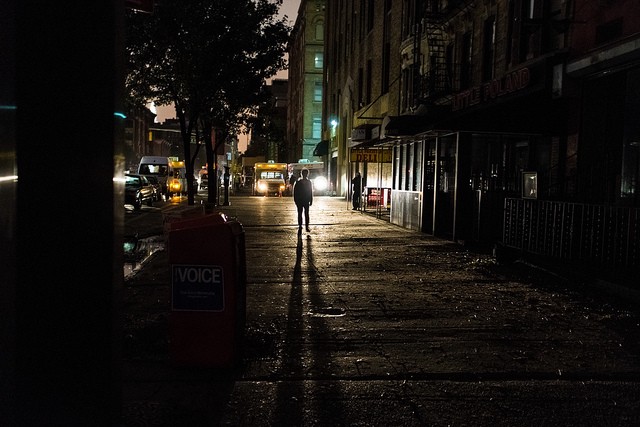
During those three hours of walking in almost total darkness to Magnolia Street in the West Village, I felt more lost than I have ever felt in my life. The night was moonless. No one I saw had a flashlight — every store that sold them had shuttered for fears of looting. I couldn’t see people until they were literally one or two feet in front of me. Street signs took minutes of scanning to find. There was nothing to do but keep walking. I remember pausing to catch my breath and realizing I was in Times Square, inky and lightless as the deepest woods I had ever camped in. It was beautiful and stupefying — like the truth I had been realizing and hiding from and reminded of by Krakauer’s book. The truth about my religion, and about myself. I just stood there looking at nothing for a long time. I had no fucking idea what to do with any of it.
I was in Times Square, inky and lightless as the deepest woods I had ever camped in. It was beautiful and stupefying — like the truth I had been hiding from.
When I arrived at my apartment on Magnolia Street, I walked up the three flights and let myself in the front door. I thought my husband might have been worried, and I pictured him rushing to the door to greet me. He was sitting on the fire escape, drinking a beer. He heard me come in, but didn’t get up. Through the light leaking in from stars and candles from our neighbors windows I saw him look my way, then turn back toward the street. I heard him sigh. He took another sip of his beer. I knew in that moment: he’s not relieved that I’m okay. He isn’t elated that I made it home, miraculously, on the craziest night either of us had ever experienced in Manhattan. He isn’t happy to see me. He wasn’t worried. He doesn’t love me either.
But this moment of truth would be like many others. I didn’t know what to do with it. I didn’t know a lot of things then. I didn’t know that one of the twelve women in my book club had never read anything about the “real” history of the L.D.S. church; my book choice would completely devastate her faith. She never attended church again after we met to discuss Under the Banner of Heaven. I didn’t know I would try so hard to keep believing for another two years before leaving Mormonism behind for good. I didn’t know it would take me another nine years and three children to leave a doomed marriage. Or that, fifteen years after reading Kraukauer’s book, I would get so much more out of having coffee in bed with my boyfriend on Sunday mornings that I ever did from attending three hours of church on the Sabbath. Or that life, without the rote answers, clear direction, and all-encompassing structure of Mormonism to guide me, would feel so much like stumbling around slowly in the dark, trying to find my way. And that this feeling might last the rest of my life.





